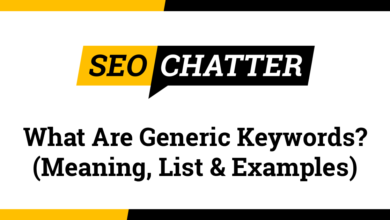An Introduction to Artful Link Poaching -SEO Guide

Link poachery falls into that class of link acquisition strategies that includes Link Reclamation and Link Harvesting.
Link reclamation deals with asking Website owners to replace links whose original destinations have been taken offline.
Link harvesting deals with redirecting assets you control – which have earned links – toward other destinations you control. These redirected URLs are typically old, long-abandoned articles or microsites. The new destinations are still appropriate for the links.
Link poaching is where you find a competitor’s backlink and instead of getting a link from the same page, you just persuade the site owner to change the destination to your own site. That deprives your competitor of a link and gives you one.
While not deemed unethical by many people, link poaching isn’t very common. It can be unethical and even illegal if you poach links for inappropriate or illegal content. Remember that truth-in-advertising and compensation disclosure rules may still apply to poached links.
The most popular method of link poachery is to create a better resource than whatever the original destination happens to be. Then you persuade the person giving the link that their audience will be better served by your destination. Sometimes, you’ll get a link without depriving the other site of their link but the intent is essentially the same: to leverage someone else’s earned link for your own advantage.
I Have Had to Poach My Own Links
Long-time subscribers may recall that a few years back Randy Ray and I let a domain expire because it wasn’t making any money. Someone picked it up and then sold it (using OUR content) for $2500.
Despite my efforts to recover the domain, we finally had to republish our content on a lookalike domain. Fortunately, we were able to get some of the old links changed to point to our domain, and we now control the queries the former domain dominated.
And the site makes enough money to pay for its hosting and domain renewals.
Whenever I move content from Xenite’s root host to a subdomain I have to think about whether to redirect the old URLs or to poach links from my science fiction and fantasy friends. Asking them to update their links is only necessary if I want to reuse the URLs.
For that matter, any in-network links we point to content that is moved are (almost) always reviewed and updated. Fortunately, we rarely have many in-network links pointing to any of our content.
The most recent self-poaching I can think of is when I moved the SF-Fandom forums from a subfolder on the root host to a new subdomain. While that wasn’t my first choice for the forums, it was a less time-consuming task for me than trying to replace our outdated VBulletin software with something else in the same location. I redirect the old forum homepage to the subdomain and updated some of our in-network links.
Link Poaching That Helps Everyone…but Spammers
Suppose you decide to create a great Skyscraper article and you want to get links from sites that are already linking to similar content.
If you have the means to ferret out link destinations that have expired (for reclamation) or which have been replaced by link reclamation strategies (by people who picked up expired domains), then you can approach their backlink providers and tell them you have the content they should be linking to. That is, their links are either pointing to dead or irrelevant destinations – so you can pitch them on upgrading their old content to be more relevant.
It might help your case a little if you check all the outbound links on whatever page you’re interested in and recommend good alternative destinations, preserving as much of the original intent and value as possible. That is, don’t try to get 5 links for 5 clients instead of just 1 link.
I’ve updated many articles on the Web for clients (and our own portfolio) simply by replacing old links that were no longer useful. It usually doesn’t take long to scan all the outbound links on a page and see if their destinations are still valid. You can check them in the Wayback Machine to see if they have been changed since the original links were given.
*=> Is link reclamation a spam technique? Well, Google discourages the practice. You make the call.
What If You Can Take Over A Site?
I’ve done this too, although not often. A few years back I found references to a site with a cool name. The site was hosted on Blogspot. Unfortunately, the site had been taken offline.
It took me about 30 seconds to decide to create a new blog there. I’ve kept it live over the years and added some new content every year. It still has some of the original links people once pointed to the earlier site.
This is not the kind of strategy that changes the world for anyone. It was a fun exercise in reconditioning a so-called Web 2.0 site. The original site was the personal blog of a university professor. It wasn’t some spammy PBN resource.
I’d like to think the current site is better than its predecessor. That has been my goal: to do better than before. The site earns traffic, although only about as much as one can expect for a site where I do as little as possible.
According to Google Search Console, I’ve never earned a manual action with the site. So I know this is a safe strategy if you’re willing to do it carefully.
Essentially, I poached the entire blog for myself. That was about the riskiest part of the experiment.
It’s not much of an intuitive leap to deduce that if you can do this with a free-hosted blog then you can do it with a standalone domain. And when people ask how safe it is to rebrand a well-established domain, I can honestly tell them that it should work.
Social Media Link Poaching Isn’t Productive
If you can get someone to edit a social media post, I suppose you could poach links from them. They won’t influence search results but they may still be found by people using social media search.
You can’t poach links on Twitter because we can’t edit Tweets.
Nor can you poach URL shortener links.
Given that most social media platforms prevent search engines from following their links anyway, there is no SEO value in trying to poach these links. I’ve seen people poach accounts, but that’s a very risky practice.
Conclusion
Most sites won’t benefit from attempts to poach links. They won’t have many opportunities and the return on investment for your time is rather low. The people (in my experience) who claimed to have the most success with poaching paid for the poached links.
The strongest justification for link poaching is where you lose control of an old domain and must rebuild with a lookalike domain. This article was inspired by my frustration at seeing my old student newspaper Website taken over by a spammer. If I were responsible for the university’s search engine optimization, I would be reaching out to everyone who was linking to the old site and asking them to update their links.
Related
#Introduction #Artful #Link #Poaching





